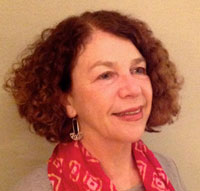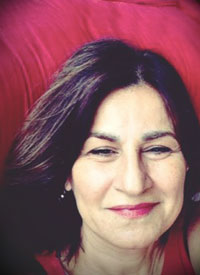International Chapter Committee
Australia
Argentina
Chile
Greece-Thessaloniki
Greece-Athens
Israel
Peru
Spain
News from the International Chapters Committee
By Juan Francisco Jordan (Chile) and Marianne Kennedy (Australia)
The international IARPP community is vibrant, alive, and growing!
In this issue we bring you news of a rich and innovative range of events and activities in our chapters in Spain, Chile, Israel, Australia, and Greece-Athens as well as exciting news from our most recent chapters in Peru, Argentina, and Greece-Thessaloniki. In recent months these activities have included conferences, seminars, and workshops featuring both local and international speakers, as well as reading and study groups, colloquia in local languages, and local journals.
We are looking forward to getting together at our annual International Chapters Committee meeting at the conference in New York, and hope that there will also be opportunities for more informal sharing of local experience and ideas at other times during the conference.
We also hope that many of you will take the opportunity to say hello and make contact with us during the conference.
With warm best wishes,
Marianne Kennedy and Juan Francisco Jordan
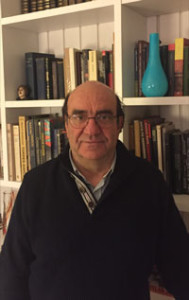
 Back to top
Back to top
News from IARPP-Australia
By Gerard Webster, President
2018 has been off to a great start for IARPP-Australia, both regarding professional development events and developing the chapter as an organization. Andrea Celenza came to Sydney to give a most stimulating and challenging two-day workshop about erotic dynamics and professional boundary violations. Clinicians and non-clinicians came from far and wide to hear how Andrea has come to understand these phenomena. Those who have seen Andrea present will not be surprized to hear that she created for us a challenging tapestry of empirical information, psychoanalytic theory, and rich case material that will keep us thinking for years to come.
Barbara Pizer then offered a four-part seminar series on the work of Paul Russell, joining us via video conference from Cambridge, Massachusetts. Few of us “down-under” were aware of Russell’s then-radical contributions to the development of relational perspectives in psychoanalysis. Barbara brought Russell’s writing to life, with her characteristic warmth and clinical sensitivity, to an audience logging in to the series from across Australia and New Zealand.
The remainder of the year is going to be full of new ideas and conceptual frameworks. Holly Levenkron will be presenting a six-part, online seminar series on field theory in September and October. And Eyal Rozmarin will be presenting, in-person, to audiences in Sydney and Melbourne about the socio-political.
IARPP-Australia held its Annual General Meeting and election on 9 March 2018. The team comprises six new faces who will be supported in their roles by past committee members. Current committee members include Lyn Abery (Treasurer), Tammy Ben-Shaul, Margie Chodos, Kris Rao, Brenda Rowlandson (Secretary), Roshanak Vahdani, and Gerard Webster (President). Roberto D’Angelo (Past President) and Annette Conradi (Past Secretary) continue their involvement as ex-officio members, and Deborah Meese has also joined the team as an ex-officio member. We are particularly pleased to have Tammy and Deborah on the committee as speakers for the new IARPP-Australia subgroup based in Melbourne.
IARPP-Australia launched its Melbourne affiliate on 1 March 2018 with then IARPP-Australia President, Roberto D’Angelo, and Ilene Philipson from the Institute of Contemporary Psychoanalysis, Los Angeles, appearing as guest speakers. The evening was most successful and well organized by Tammy and the Melbourne committee that includes Elisabeth Hanscombe, Rebeka Harriott, Richard Inglis, Nada Lane, and Deborah Meese. While it has only been a short time since the launch, the Melbourne group has set up relational reading groups across the city and has initiated “community conversations” for members to come together to discuss all things relevant to practicing as a relational psychotherapist. Great things lay ahead for IARPP-Australia as the organization grows and as subgroups share ideas and resources.
The IARPP-Australia committee met on 19 May 2018 to plan its business strategy for the next three years. In addition to the current 2018 calendar, we look forward to trialing “community conversations” and re-introducing reading groups in Sydney, just as those in Melbourne have done. We are planning to introduce annual symposia, with two half-day events taking place in 2019 both in Sydney and Melbourne. The symposia will feature a mix of local and international speakers who will present on a topic of interest to relational psychotherapists and psychoanalysts. An introductory course in relational psychoanalysis will be offered in 2020 that seeks to attract recent graduates from the helping professions. 2021 will see the first IARPP-Australia Conference. We hope that these activities attract more people to relational psychoanalysis across Australia and the Oceanic and Asia regions.
 Gerard Webster, PhD
Gerard Webster, PhD
Email Gerard Webster
 Back to top
Back to top
News from IARPP-Argentina
By Alberto Samperisi, President, and Mariela Cuello, Secretary
(clic aquí para el español)
Dear IARPP Community,
In February of 2018 we began a weekly study group in which we are exploring and deepening our understanding of the book Influence and Autonomy in Psychoanalysis by Stephen Mitchell.
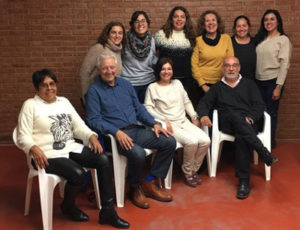 We are also working on the design of the IARPP-Argentina website that we will launch soon, its goal being to disseminate concepts from relational psychoanalysis and psychotherapy to our country and to the world.
We are also working on the design of the IARPP-Argentina website that we will launch soon, its goal being to disseminate concepts from relational psychoanalysis and psychotherapy to our country and to the world.
We are also organizing and planning an inauguration of the Argentina international chapter in November of this year. It will be a cultural, academic, and gastronomic event. We are looking forward to inviting IARPP representatives to come to Argentina for this event, and we would like to invite all members of the IARPP community to be part of this event.
 Noticias de IARPP-Argentina
Noticias de IARPP-Argentina
Por Alberto Samperisi, Presidenté, y Mariela Cuello, Secretaria
(click here for english)
Estimada comunidad de IARPP,
En febrero de 2018 dimos comienzo al grupo de estudio de frecuencia semanal, explorando y profundizando sobre el libro “Influencia y Autonomía en Psicoanálisis” de Stephen Mitchell.
Además, estamos trabajando en la creación/elaboración de la página Web en español de nuestro Capítulo que deseamos se concrete pronto, dedicada a la difusión del psicoanálisis y la psicoterapia relacional en nuestro país y el mundo.
A su vez estamos organizando la Inauguración de Capítulo Argentino de IARPP para el mes de noviembre de este año, preparando un evento académico, cultural y gastronómico. Contaremos con la presencia de miembros representantes de IARPP que definiremos en lo sucesivo. Deseamos invitar a toda la comunidad de IARPP a ser parte de este evento.
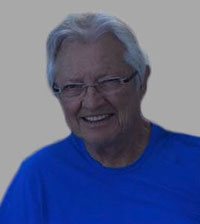 Alberto Samperisi, MD
Alberto Samperisi, MD
1339, San Martin Street
5700 San Luis, Argentina
Email Alberto Samperisi
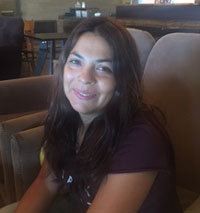 Mariela Andrea Cuello, BA
Mariela Andrea Cuello, BA
Barrio Portal de la Aguada
Manzana B Casa 9
5700 San Luis, Argentina
Email Mariela Andrea Cuello
 Back to top
Back to top
News from the Chilean IARPP chapter
By André Sassenfeld
2018 is proving to be yet another productive year for Chile´s IARPP international chapter. We have already had a successful first clinical seminar entitled “Revisiting the IARPP Conference: From the Margins to the Center,” in which we revisited some of the papers Chilean IARPP members presented last year at the international conference in Sydney, Australia. Our goal has been to build bridges between national and international debates in the relational community.
Here is part of a commentary on the seminar written by member Gianni Canepa: “María José Mezzera and Matías Fernández told us about their perceptions, particularly regarding the main topic of the conference, margins (in this case, Australia) and the center (I guess NYC). We were able to reflect on how at times we feel ourselves to be at the center and at other times we are at the margins; this is how some Chileans feel about themselves and as well as how some Chileans feel in regard to other Chileans.
“The first two papers made reference to clinical topics, including specific ways of approaching patients and the relational experience. Juan Francisco Jordán reminded us of Ronald Laing and his nakedness before psychosis, and María Eugenia Boetsch generously shared with us about a clinical interaction me might term “self-disclosing til it hurts.
“The second part of this seminar covered more political topics. Víctor Doñas made us think about the encounter (or failed encounter) between psychoanalysis and politics historically as well as its future possibilities. Francesca Colzani described the panel she participated in in Sydney, where our collective responsibility in the case of refugees coming to Australia were discussed, many of whom are taken to far-off islands where their most basic human rights are disregarded.
“Finally, there emerged a valuable dialogue among the program participants that included clinical topics—the role of self-disclosure and shame for example—and political topics, including what to expect from an institution like IARPP in this respect. To conclude, I can say that is was a valuable meeting where I was able to perceive with much clarity the main topics and debates that were present at the Sydney conference.”
In May, we will have a second meeting and celebration of the seven years our local chapter has already been in existence. We will take some time to reflect on our local association as well as toast to our continued success with good Chilean wine. More clinical seminars will follow during the year. In the second half of this year, we will have the pleasure of welcoming Adrienne Harris as our international guest.
Finally, our member and former member of the IARPP board of directors, André Sassenfeld, has just published his sixth book, entitled Being with Others: Body, Affectivity, and Relationship in Relational Psychotherapy. We are looking forward to a book launch soon.
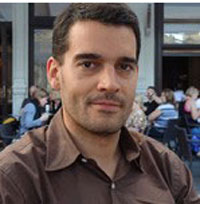 André Sassenfeld, MA
André Sassenfeld, MA
Emai André Sassenfeld
 Back to top
Back to top
Report from IARPP Greece-Thessaloniki
By Tanya Anagnostopoulou, Nayia Doudali, and Kassiani Feleki
The IARPP Greece-Thessaloniki chapter had its inauguration on February 3, 2018.
Invited speakers were Spyros D. Orfanos, past President of IARPP, who gave us an overview of the relational movement, and Jessica Benjamin who talked about “ Paradox and Play: From Enactment to Thirdness.”
Though the youngest chapter of IARPP, we are not new to relational psychoanalysis. We started experimenting with relational concepts 10 years ago during a three-year-long intensive Skype study group, organized by IARPP and Spyros Orfanos in Athens and Thessaloniki (2008-11). We have translated many articles written by eminent relational analysts and continue studying and applying relational innovations to our clinical and theoretical work.
Our chapter comprises a group of 13 experienced clinical psychologists and psychiatrists who are psychoanalytically trained in the classical and object-relations theory. It is our wish to continue expanding our knowledge and clinical practice in a thorough and thoughtful way. As a first step in this direction, we have arranged to have a seminar with Joyce Slochower on “Reading Winnicott Today: A Relational Lens” during February and March, 2018.
As the field of psychotherapy is still unregulated in Greece – allowing people with minimal training to work as therapists or analysts – we feel the responsibility to walk the fine line between being open and inclusive on one hand and maintaining our high standards of theoretical and clinical training on the other.
Therefore, our credo focuses on high quality in all our work, critical reading, and reflection on relational concepts, and openness to experimenting with relational approaches useful in our clinical praxis. We are interested in the implementation of relational ideas in the social and political field, as well as in philosophy and the arts.
We are still in the beginning stages of setting up our organization and our plan is to move ahead with thoughtful, steady steps. We look forward to collaborating with other international chapters and to jointly organize workshops and seminars with the IARPP chapter in Athens.
In our next report we will inform you about our first elections and plans for the academic year 2018-19.
See you all in New York!
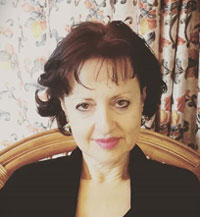 Tanya Anagnostopoulou, PhD
Tanya Anagnostopoulou, PhD
clinical psychologist
Emai Tanya Anagnostopoulou
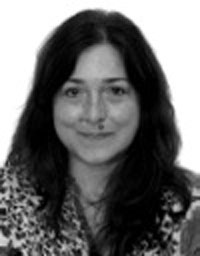 Nayia Doudali
Nayia Doudali
clinical psychologist and psychoanalyst
Email Mayia Doudali
Kassiani Feleki
psychiatrist and psychoanalyst
Emai Kassiani Feleki
 Back to top
Back to top
News from IARPP Greece-Athens
By Alexis Mordoh, Chair
Dear colleagues,
Greetings from the Greek international chapter in Athens! Here in Athens we have recently organized a seminar for our members that involves structured clinical case presentations coupled with discussions of seminal writings from the relational psychoanalytic literature. As this seminar has been progressing, it has been greatly enriching our clinical work and deepening our understanding of the theory, leading to lively debates and exchanges of ideas.
On another note, having gone through financial difficulties in the past due to new taxes having been imposed unexpectedly on professional associations such as ours, we are now very happy to report that we have been able to achieve a positive balance in our budget. That, in turn, puts us in a better and safer position for organizing future activities.
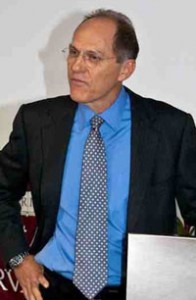 Alexis Mordoh, PsyD
Alexis Mordoh, PsyD
Chair
IARPP Greece-Athens
Email Alexis Mordoh
News from IARPP-Israel
By Esther Rapoport
For the Israeli chapter, the past several months have been tightly packed with rich, stimulating, and innovative activities. On February 15-16 the traditional local “Relational Circles” conference was held, this time in an experimental format that we chose to call “Expanding Circles.” It took place in Acre (Akko), in the north of Israel. The theme, borrowed from the 2017 international conference in Sydney, was “Center and Periphery,” and the lectures and panels focused on geographical and social peripheries, as well as the peripheries of the body, the psyche, the clinician’s attention, and the clinical encounter.
The opening event of the conference was a play “Frekha is a Beautiful Name,” dealing with Mizrahi (Jews of Middle Eastern/North African origin) and gender issues. The play was followed by a discussion with the actresses, touching upon difficult, potentially divisive social issues. The Expanding Circles conference, organized by Udi Chen, Esther Rapoport, and Noga Guggenheim, was the first large-scale event the Relational Forum has ever held outside Tel Aviv. A significant number of the participants came from the north of Israel, and the cultural and religious diversity of the attendees was markedly higher than is usual at relational events.
Next, from April 25 to May 4, an online Hebrew-language colloquium for the local chapter was held. The colloquium, meant to further develop the “periphery” theme, was based on Effi Ziv’s paper “Persistent Trauma” (2012), which theorizes the traumatic effects of chronic oppressive social conditions, and underlines the importance of political resistance for healing from such trauma. The colloquium was organized by Shaily Wardimon and moderated by Noga Guggenheim and Udi Chen; Chana Ullman, Esther Rapoport, and Tova Buxbaum served as discussants. The participants were mutually respectful and accepting of differences of opinion, and the discussions that unfolded were intimate, alive, and profound, touching on clinical, personal, and political dilemmas, including some of the contentious political issues that have been dividing IARPP and the adjacent professional communities in recent months.
Finally, on May 16 the Chapter Chairwoman, Ilana Laor, gave a lecture on the personal transformations experienced by clinicians in the course of their clinical work. Ilana’s presentation of her original, fascinating, and counter-intuitive empirical research findings, was followed by a discussion by Roni Baht. Tami Dror Schieber moderated the evening, organized by Yoav Antman and Udi Chen. The event was in such high demand that it had to be moved to a larger space to accommodate all who wished to participate.
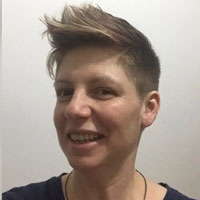 Esther Rapoport
Esther Rapoport
Email Esther Rapoport
 Back to top
Back to top
Report from IARPP-Perú
By Marie Saba, President
(clic aquí para el español)
Dear All,
A year has passed since we opened the Peruvian chapter of IARPP, so we´ll start with what happened last year, continue with where we are now, and conclude with our plans for the near future.
As some of you might remember, we started IARPP-Perú last May with Galit Atlas and Lew Aron coming to Lima for our inaugural event. The bar was set very high! Below you´ll find a brief description of the conferences and talks during 2017, 2018, and plans for 2019.
Study Groups:
As interest in relational psychoanalysis increased, our weekly study group has grown quickly. We started another group at a colleague’s office, where we share the same readings. A third group, which is starting at the end of May, has been organized as well. For almost a year and a half we have read freely, deciding our next reading each week. Doing it this way we have discovered many advantages; sometimes we thought the readings had no evident connection between them, only to find afterwards that selecting them was the “natural” thing to do. Nevertheless, we felt we left important issues behind, so we decided to start organizing the readings by topics.
Power dynamics was what first came to mind: power in the consulting room, in institutions, in families, between couples, etc. The idea was not limited to study groups; we also tried to organize, whenever possible, most of our chapter’s activities around the topic of power dynamics. Our process was first to discuss in person the reading in each group, but we also opened an online platform to discuss the readings with the other groups, creating an IARPP Perú Facebook page (a private study group page). We we would like to suggest that the other Spanish-speaking chapters of IARPP join us in this adventure. We´ll be finishing the current set of readings by June, so beginning in the month of July we all can choose a new topic and the readings that go with it. The upcoming conference in New York will be a great place to talk about this, to start an ongoing dialogue among members of all the Spanish-speaking international chapters.
We find people who don´t speak English may be reluctant to join IARPP. However, increasing the Spanish-language activities such as online group study discussions may represent a small contribution toward encouraging Spanish-speaking colleagues to join IARPP.
IARPP Perú, Tavistock Institute, and Catholic University Event:
As mentioned above, the topic for these past months has been power dynamics. In collaboration with The Tavistock Institute and Catholic University, we organized a conference about Church power dynamics, with Christopher Scanlon (www.tavinstitute.org/staff/dr-christopher-scanlon/) as the main guest. We are grateful to Dr. Eliat Aram, the CEO of Tavistock Consulting, for Tavistock’s participation in this event.
Scanlon´s presentation was followed by one by Pedro Salinas who wrote a book based on an investigation he did with abuses perpetrated by a religious group (if interested, here´s a link to the “official” report presented by the accused institution: http://sodalicio.org/wp-content/uploads/2017/02/Informe-Abusos-English.pdf). The third speaker was Dr. Max Hernandez who also talked about the subject.
Workshop:
Needless to say, literature and psychoanalysis go hand in hand. Accordingly, we recently organized a workshop entitled “Literature and Relational Psychoanalysis: A Shared Seduction” (Literatura y Psicoanálisis Relacional: una seducción compartida). The workshop was led by Marco Martos, a renowned and respected Peruvian poet and current president of the Royal Academy of Spanish Language (RAE), and Marie Saba (IARPP-Perú). The workshop was interdisciplinary and open to non-IARPP members. Keeping in mind the subject of power dynamics, we read books on this topic that gave us food for thought, such as Orwell´s 1984, Marai´s Eszther´s Inheritance, Kafka´s Metamorphosis and Duras´s The Lover. The idea was to think about power dynamics in the different types of relationships described in these books: a dictatorship government and individuals, couple dynamics, father/son dynamics, etc. We´ve finished this first workshop and the second one will begin soon.
Conferences:
Relational interest has risen in different areas, such as child and adolescent relational clinical work and relational couples therapy. IARPP-Perú organized all of the events in relation to Jeanne Magagna´s visit to Lima to present her book Estar presente para tu hijo en edad de Parvulario (Being Present for Your Nursery Age Child). Five conferences were organized, three of them in schools, for students, teachers, and parents; one conference at the Peruvian Psychoanalytic Institute; and the last one at a psychotherapy organization.
Talks:
Besides the above-mentioned events, three talks on Relational Psychotherapy and Psychoanalysis were recently given by IARPP-Perú members at the Family and Couple Peruvian Society SPF (Sociedad peruana de familia y pareja). We started with basic relational concepts and continued with a discussion of readings from the following authors chosen for this event: Ferenczi, Stephen Mitchell, Darlene Bregman Ehrenberg, Jessica Benjamin, and Lewis Aron.
As for our immediate and future plans, in November of this year we are organizing a seminar in which we will discuss Psychoanalytic Clinical Freedom, with Francesca Colzani and Juan Francisco Jordán from Chile as the invited presenters. Next year we are planning to organize a conference with the participation of Alejandro Ávila Espada. Both events will take place with the co-participation of Catholic University.
Best regards to all IARPP members,
Marie Saba
Chair of IARPP Perú
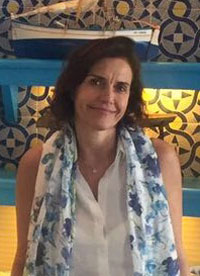 Marie Saba, MA
Marie Saba, MA
Lima, Perú
Email Marie Saba
Informe de IARPP-Perú
Por Marie Saba, President
(click here for English)
Estimados amigos, ha pasado un año desde que se abrió el capítulo peruano, así que comenzaremos con lo que sucedió el año pasado, continuaremos con dónde estamos ahora , y concluíremos con nuestros planes para el futuro más cercano.
Como algunos de ustedes recordarán, empezamos con IARPP Perú en mayo del año pasado con la llegada de Galit Atlas y Lew Aron a Lima para la inauguración. La vara quedó alta. Arriba encontrarán una breve descripción de las conferencias y charlas durante el 2017, 2018 y los planes para el 2019.
Grupos de Estudio:
A medida que el interés por el psicoanálisis relacional aumentaba, nuestro grupo de estudio semanal creció rápidamente. Comenzamos otro grupo de estudio en el consultorio de un colega, donde se comparten las mismas lecturas. Un tercer grupo, que comenzó a fines de Mayo, se ha organizado también. Durante casi un año y medio, leímos libremente, decidiendo la siguiente lectura cada semana. Haciéndolo de esta manera encontramos muchas ventajas; algunas veces las lecturas no tenían una conexión evidente entre ellas, sin embargo pronto descubríamos que era la adecuada.
Sin embargo, sentíamos que dejabamos de lado algunos asuntos importantes, por lo que decidímos empezar a organizar las lecturas por temas.
Las dinámicas de Poder fue lo primero que se nos vino a la mente: Poder en el consultorio, en las instituciones, en la familia, en la pareja, etc. La idea no estuvo limitada solo para los grupos de estudio, intentamos de organizar, siempre que fuera posible, la mayoría de las actividades del capítulo en torno al tema de las dinámicas de poder. Al hacer esto, discutíamos personalmente las lecturas en cada grupo, pero abrimos una plataforma para tener la posibilidad de discutir con los demás grupos usando el Facebook de IARPP Perú (grupo de estudio privado). Nos gustaría proponer a los capítulos de habla hispana a que se unan a esta aventura. Terminaremos este conjunto de lecturas para Junio, por lo que a partir del mes de Julio, todos podemos elegir un nuevo tema y las lecturas que lo acompañarán – la conferencia será un gran lugar para discutir esto– e iniciar un diálogo continuo entre los capítulos de habla hispana.
Descubrimos que las personas que no hablan inglés podrían estar frenándose de unirse a IARPP. Sin embargo, el aumentar actividades en español como discusiones de estudios de grupo via online podrían representar una pequeña contribución para incentivar a los colegas.
Evento de IARPP Perú, El Instituto Tavistock y La Universidad Católica del Perú:
Como se mencionó anteriormente, el tema de estos últimos meses ha sido las dinámicas de poder. En combinación con el Instituto Tavistock y la Universidad Católica del Perú, organizamos una conferencia sobre Las Dinámicas de Poder en la Iglesia con Christopher Scanlon (www.tavinstitute.org/staff/dr-christopher-scanlon/ ) como invitado principal. Estamos agradecidos con el Dr. Eliat Aram, CEO de Tavistock Consulting, por la participación de el Instituto Tavistock en este evento.
La presentación de Scanlon estuvo seguida por Pedro Salinas, quién escribió un libro basado en una investigación que realizó sobre los abusos perpetrados por un grupo religioso (en caso de que alguien esté interesado, aquí hay un enlace al informe oficial presentado por la institución acusada: http://sodalicio.org/wp-content/uploads/2017/02/Informe-Abusos-English.pdf). El tercer ponente fue el Dr. Max Hernández, que también habló sobre el mismo tema.
Taller:
No hay necesidad de decir que la literatura y el psicoanálisis van de la mano. Hemos organizado el primer taller llamado “Literatura y Psicoanálisis Relacional: una seducción compartida”. El taller está dirigido por Marco Martos, un renombrado y respetado poeta peruano y actual presidente de La Real Academia de la Lengua Española (RAE) y Marie Saba (IARPP Perú). El taller es interdisciplinario y está abierto también para personas que no son miembros de IARPP. Teniendo en mente el tema de las dinámicas de poder, hemos leído libros donde este tema no sirvió de alimento para el pensamiento como 1984 de Orwell, La Herencia de Eszter de Marai, La Metamorfosis de Kafka, y El Amante de Duras. La idea era pensar sobre las dinámicas de poder en diferentes tipos de relaciones descritas en los libros: el gobierno y los individuos en una dictadura, las dinámicas de pareja, dinámica de padre-hijo, etc. Hemos terminado el primer taller y el segundo empezará en el presente mes.
Conferencias:
El interés Relacional ha aumentado en diferentes áreas, como la práctica clínica relacional en niños y adolescentes y la terapia relacional de parejas.
IARPP Perú organizó todos los eventos relacionados a la visita de Jeanne Magagna a Lima para presentar su libro “Estar presente para tu hijo en edad de Parvulario”.
Se organizaron cinco conferencias, tres de ellas en colegios para estudiantes, profesores y padres. Una conferencia para Instituto Psicoanalítico Peruano y el último para una organización de psicoterapia.
Charlas:
Además de los eventos mencionados, se han realizado tres charlas sobre La Psicoterapia y Psicoanálisis Relacional por los miembros de IARPP Perú en la Sociedad Peruana de la Familia y la Pareja (SPF). Empezamos con conceptos relacionales básicos y continuamos con la discusión de textos elegidos para este evento: Ferenczi, Stephen Mitchell, Darlene Bregman Ehrenberg, Jessica Benjamin y Lewis Aron.
En cuanto a nuestros planes inmediatos y futuros, en noviembre de este año estamos organizando un seminario sobre la Libertad en la Clínica Psicoanalítica, y de Chile se han invitado para participar a Francesca Colzani y a Juan Francisco Jordan. El próximo año estamos planeando organizar una conferencia con la participación de Alejandro Avila Espada. Ambos eventos contarán con la participación de la Universidad Católica.
Saludos a todos los miembros de IARPP
Marie Saba
Presidenta de IARPP-Perú
 Marie Saba, MA
Marie Saba, MA
Lima, Perú
Email Marie Saba
 Back to top
Back to top
Report from IARPP-Spain
By Rosa Velasco, President, and Aleksandra Misiolek, Secretary
(clic aquí para el español)
The next – 8th IARPP-Spain meeting will take place in Seville on October 17-18, 2019. The preliminary theme of the conference is Relational Psychotherapy and Attachment, and the invited speakers will be Mario Marrone and Mauricio Cortina. We will keep you informed about more details in the upcoming issues of the eNews.
A new issue of the journal, Revista Clínica e Investigación Relacional, created by Ágora Relacional and co-sponsored by IARPP-Spain and IPR, has been launched. The articles can be accessed by clicking on the following link: https://www.psicoterapiarelacional.es/CeIRREVISTA-On-line/Volumen-12-1-Febrero-Marzo-2018
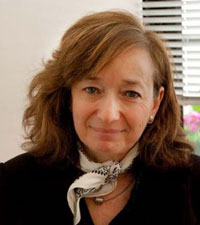 Rosa Velasco
Rosa Velasco
IARPP-Spain President
Email Rosa Velasco
 Aleksandra Misiolek
Aleksandra Misiolek
IARPP-Spain Secretary
Email Aleksandra Misiolek
Informe de IARPP-España
Por Rosa Velasco, Presidenta, y Aleksandra Misiolek, Secretaria
(click here for english)
La próxima – VIII Reunión de IARPP España tendrá lugar en Sevilla, el 17-18 de Octubre de 2019. El tema preliminar de la conferencia será Psicoterapia Relacional y Apego y los ponentes invitados serán Mario Marrone y Mauricio Cortina. Os iremos informando sobre más detalles en los próximos Newsletters.
Ha salido el último número de la Revista Clínica e Investigación Relacional, co-patronizado por IARPP-España. Se pueden leer los artículos haciendo click en el siguiente enlace: https://www.psicoterapiarelacional.es/CeIRREVISTA-On-line/Volumen-12-1-Febrero-Marzo-2018
 Rosa Velasco
Rosa Velasco
Presidenta de IARPP-España
Email Rosa Velasco
 Aleksandra Misiolek
Aleksandra Misiolek
Secretaria de IARPP-España
Email Aleksandra Misiolek

